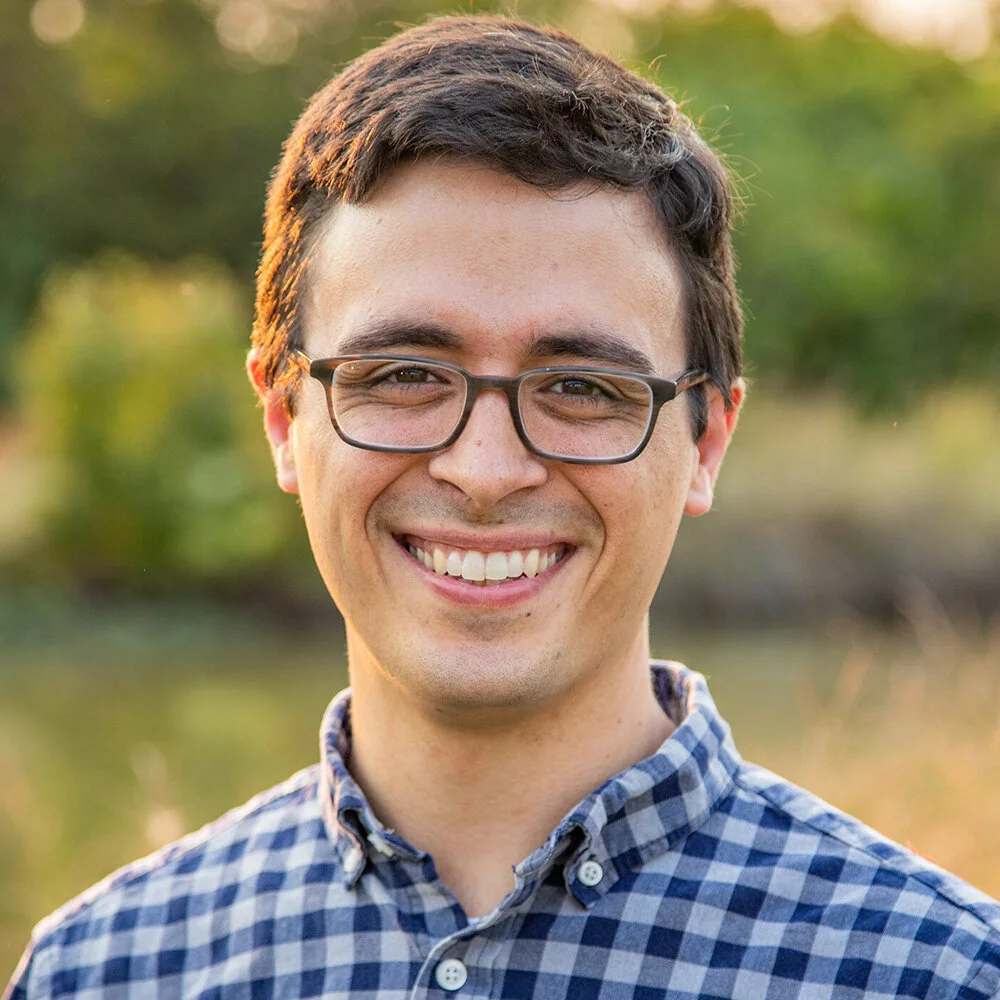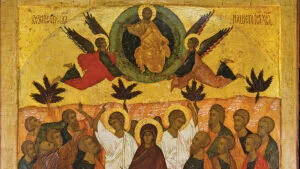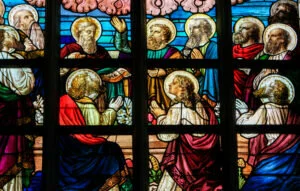The first and final end of theological education is the knowledge of God. The God in question is not just any deity, much less generic divinity, at least if the theological education in view is Christian. Christian theological education is instruction in the Christian God, which is to say, the triune God of Israel. Theological education is about him, namely, the God and Father of our Lord Jesus Christ revealed by his own Holy Spirit. Whatever else it may be, whatever other ends it may have, theological education aims at the Holy Trinity or it misses the mark entirely.
Whatever else it may be, whatever other ends it may have, theological education aims at the Holy Trinity or it misses the mark entirely.
There are many genres and locations for theological education. The modern research university is only one among many institutional habitats for it, the latest and perhaps the most expansive home, if not the snuggest fit. The monastery is one ancient and abiding institution for instruction in divine knowledge. Sunday school is another. Sometimes theological education happens within the Church, sometimes not; sometimes taught by the ordained, sometimes not; sometimes in a catechetical or devotional spirit, sometimes not. There is no one right way to do it.
Having said that, the further one gets from Christian worship—from prayer, from assembled believers, from the sacraments, from open piety and forms of devotion—the thinner the air, so to speak, for Christian learning. Theological education counts as education at all only if there is something to be educated in. Theological education fails when dressed up as disinterested anthropology or sociology of religion. Such disciplines do not pretend to be instruction in the knowledge of the living God; they analyze a dead thing, or at most, the curious but false beliefs of living people and cultures. From a Christian perspective, if that is all that is happening in theological education, then of all people we should most be pitied. If the God of Abraham did not raise his Son from the dead on the third day, theological teachers should hang it up for good.
There is potential here for a kind of pedagogical no man’s land. By this I mean that theological education is not, on one hand, merely homiletical or devotional. It involves teaching, learning, knowledge. More than prayer happens in the theological classroom. Nor is teaching one and the same as preaching. Proclamation is announcement of the word of God; what it invites or elicits is faith, as well as contrition, repentance, hope, and love. Its principal end is not knowledge per se. It is part of the Spirit’s movement in the assembly of God’s people, feeding them by word and sacrament. Liturgy is not primarily a site of learning.
On the other hand, theological education is not merely academic or intellectual. It is not only third-person knowledge about a certain subject matter (the God confessed and worshiped by the Christian Church) but second-person knowledge of a living person (the God who made and saved and loves me). The theological classroom is an existential environment. One comes to terms there with matters of life and death. Possible truths weighed and sifted have implications for one’s daily life. The God spoken about one moment might accost you later that week, just when you least suspect it. Someone in class might share a story of such accosting, a story that challenges your priors and forces you to reconsider what you assumed to be true—about everything. In a word, the theological classroom is not a safe space.
The God spoken about one moment might accost you later that week, just when you least suspect it.
This ambivalence or awkwardness is a virtue, not a vice; a feature, not a bug. Strictly speaking, all knowledge and therefore all teaching is self-involving. But certain fields are less obviously so than others. Math doesn’t tug on everyone’s soul. Engineering doesn’t make moral claims. MBA programs don’t pretend to hold the secret to life, only to making money.
Theology does hold the secret to life, human and otherwise, and theological education is at its best when it isn’t coy about the fact. This doesn’t mean theology is settled. Theology is a conversation, a continuing consultation (in the phrase of Robert Jenson). It runs from Adam to Eschaton, and God’s own entrance in the dialogue through Israel, Christ, and Church is the opposite of a conversation-stopper. The infinite vitality of God’s eternal Word, incarnate in Israel’s Messiah, means our talk with God and about God will have no end, either in this life or in the life to come.
The proximate end of theological education is therefore to induct students into this ongoing conversation. Theological teaching has succeeded, at least in part, when students have learned to speak Christian, at least in part. All believers are trained by liturgy and Scripture to be fluent in Christianese, but not everyone learns the grammar. Theological education lays bare syntax and diction, terms and concepts, etymologies and interpretive possibilities. It functions like an X-ray on the Church’s confession. As any doctor will tell you, though, the X-ray is not the point. It’s an artificial representation of a living organism. And it’s useful just to the extent that it aids the patient to grow into health or to heal from wounds.
I said that theology’s having one foot in the Church and one foot in the academy—or, to switch metaphors, residing in the overlap of an epistemic Venn diagram—is a virtue. It’s a virtue because our knowledge should be apt to the object of knowing, and knowing God is unlike knowing anything else. Theological education should reflect this, not shy away from it. Moreover, we saw earlier that all learning is self-involving in some respect or another, even STEM and business and other seemingly “purely objective” fields. For this reason the bracketing of moral, epistemic, philosophical, and/or religious elements of the knower, the known, and the ways of knowing in any field is at best a temporary ascetic move, at worst a cause for self-deception. The fact that theology cannot even simulate the ideal-typical Wissenschaft of Western academe is a point in its favor, not against it. It is precisely when theological education has attempted a façade of “science-like” methods and deliverances that it has forsaken itself, betrayed its students, and failed to accomplish its given ends.
Talk of virtue is not incidental to thinking well about theological education. For knowing God requires personal transformation; it calls forth a certain character: moral, spiritual, and intellectual. Paul Griffiths may be right that, following a certain definition of theology, anybody can learn it and do it, regardless of one’s beliefs or actions. An atheist is free to acquire the ABCs of Christian God-talk; perhaps he grasps the inner logic of the triune confession better than an ordinary Christian or a believing theologian. We know without question that sometimes wicked believers are “better” theologians than the righteous, inasmuch as their fluency in the language of faith, Scripture, and tradition far surpasses that of others. All this may be true without negating the basic point: namely, that because knowing God is unlike any other kind of knowing, theological education invites, expects, and provokes fundamental change in those seeking to grow in the knowledge of the living God.
Because knowing God is unlike any other kind of knowing, theological education invites, expects, and provokes fundamental change in those seeking to grow in the knowledge of the living God.
Theological education thus takes on a certain shape. When faithful, it is a kind of hospitality, equal parts passionate and humble. The theological teacher knows that the classroom is not the main thing. In the image of James K. A. Smith, it is a small chapel located within the larger cathedral. The teacher does well when she realizes the limits of what she can do in her little nook. Part of her job is to point clearly to where the action is: there, in the midst of Christ’s body, caught up by the Spirit in the eucharistic movement of glorifying God with one voice. Whenever theology, particularly when it is understood as a discursive discipline, grows beyond these limits, thereby competing with or dwarfing the life of the Church, we know something is amiss.
Of what use, then, however limited, is formal theological education? Much in every way.
First, some of us, strange birds that we are, find ourselves famished and hungry for it. It’s an act of nourishment in such cases. God is infinitely satisfying to the mind. Speaking only for myself, that’s the reason I’m a theologian and teach theology. I know there are others out there like me. I want them to know that God is serious food for the intellect. The feast is without end.
Second, the Church needs a few of her members to devote themselves to the granular details for which most believers lack interest or time. Homoousios and dulia and energeia and filioque are unnecessary terms for discipleship; they are not on the test, since there is none. Nevertheless they uphold Christian confession in practice by testing and shoring up the foundations. What we all need to do is say and believe the Creed. Not all of us need to know what went into writing it. A few of us do, though. That, too, is what theological education is for.
Third, not every question in the Church’s earthly pilgrimage is answered in advance, including by Scripture. Check your Bible’s glossary. You won’t find entries for unidentified aerial phenomena, or democracy, or intersex, or drone warfare, or embryonic genetic editing, or artificial intelligence, or artificial contraception. What should the Church say and do about such things? Theological education is a means of equipping the saints, not least ordained leaders, to respond to such challenges in real time with wisdom, patience, truth, and love.
Fourth and finally, followers of Christ are called to love God with their minds. Theological education, whether as teacher or student, is an exercise in loving the Lord with all one’s mind. “He who does not love does not know God: for God is love” (1 John 4:8). The God one comes to know as a theological learner is himself perfect, everlasting, boundless love. Our knowing him is a small sharing in that love. The more we know him, the more we love him; the more we love him, the more we know him.
Loving God is the ultimate aim of knowing God; in the end they are one and the same.







Comments
Be the first one to make a comment!